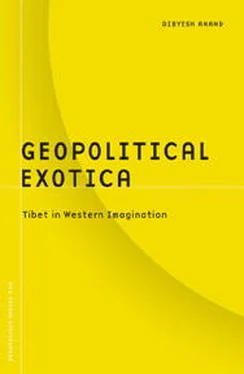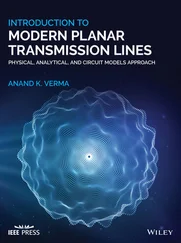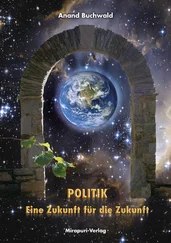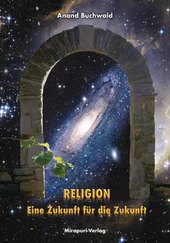The project of deparochializing IR thus entails recognition of its Eurocentrism [10]and the poverty of IR when it comes to matters concerning the majority of the world's people who live in areas formerly under direct or indirect colonial rule of Western European states. These people(s) and places have been variously worlded as "the third world," "the South," "the East," [11]"the developing world," and so on. Here I use "worlding" in a Spivakian sense to denote the giving of a "proper name to a generalized margin" (Spivak 1997, 199), to refer to the way colonized space is brought into the world, that is, made to exist as part of a world essentially constructed by Eurocentrism. The self-image of the West is often implicated in and produced by the process of naming-for instance, posing the non-West as "developing" makes the West the "developed" and hence superior (see Escobar 1995). This does not mean that non-Westerners have only been victims, lacking any agency. In fact, often the non-Westerners have catachrestically appropriated the Western (politics of) naming. We will see this in the context of Tibetans in subsequent chapters.
The Postcolonial Enterprise
In contradistinction to mainstream IR's unquestioned acceptance of modernity, postcolonialism seeks to combine participation in a progressive agential politics of identity with a metacritique of modernism for its parochial ideas and exclusionary practices disguised as universalism. [12]The primary focus here is on issues affecting people living in the third world as well as minorities in the West. I use "postcolonial" to signify a position against imperialism and Eurocentrism. Western ways of knowledge production and dissemination in the past and present are not taken for granted but put under scrutiny. Postcolonialism does not signal a closing off of that which it contains (colonialism), or even a rejection (which would not be possible in any case), but rather an opening of a field of inquiry and understanding following a period of relative closure. It involves engaging with issues and experiences that have influenced significantly the lives of peoples in the third world.
The focus within postcolonialism is on micropolitical concerns, on the politics of everyday life, as it is here that the real effects of knowledge regimes are felt. While postcolonialism foregoes the idea of some grand emancipation, it remains an empowering discourse for gendered and racialized subjectivities, hitherto marginalized by the dominant discourses. However, such a retheorization of politics does not necessarily imply the jettisoning of macropolitical questions. Though the specificity of "big" political issues is negotiated and resisted at an individual and local level, they often have a containing and constraining influence. One such macropolitical question is related to the issue of self-determination. While skepticism of nation- and state-building projects within postcolonialism (see Prakash 1995) is understandable, it cannot be denied that there are many groups, such as the Tibetan or Palestinian diasporas, who seek to define their collective identity in terms of nation and collective aspirations in terms of state. The inter-national (in practice, interstate) character of world politics circumscribes means of collective political self-expression. While the postcolonialists have contributed substantially by studying resistance to state-building projects from the perspectives of gender and indigeneity, there is also a need to take into account resistance coming from those identifying themselves as distinct nations or as distinct ethnic groups. The discrediting of nationalism as a liberating ideology does not mean that all those who mobilize themselves in the name of nationalism now are operating under some sort of "false consciousness," for often it is done strategically. For instance, Tibetans adopt different vocabularies keeping in mind the audience, ranging from the rhetoric of human rights to the right of self-determination, from autonomy to secession. Postcolonial theory needs to take such issues into account to be more meaningful to many people living within the third world. As Scott has argued, the thrust of the argument now should be to move away from postcoloniality's politics of theory to a new theory of politics where "the accent is on political rather than cultural criticism" (1999, 19, emphasis in original).
As critical theories going under the name of feminism, poststruc-turalism, and constructivism have already challenged the dominance of conventional IR theories, a postcolonial IR becomes a real possibility. This possibility itself shows how far IR has changed in the last two decades since the disciplinary/intellectual histories of IR and Postcolonial Theory have been very distinct.
IR and Postcolonial Theory: Divided Skies, Divided Horizons?
A brief comparison of IR, an established discipline-in-crisis, and Postcolonial Theory, an antidiscipline, gives us an idea of how these two diverge. Here I begin with mainstream IR theory, [13]especially its realist and liberal strands, before moving on to critical IR in the next section. IR emerged as a discipline in its own right in the Anglo-American world at a time when the authority of Western imperialism was more or less secure. The proponents concerned themselves with the "big" issues of war and peace that affected the relations between "civilized" nation- states. Theoretical antecedents were traced to thinkers and statesmen of the Western world. While Thucydides' and Machiavelli's works were being invented as antecedents of realism, writings from non-Western history such as Kautilya's Arthashastra (a treatise on statecraft written, allegedly, by a pundit in ancient India) were ignored. Due to their focus on narrowly defined big questions, the debates between idealists and realists conveniently ignored the issues that were central to the everyday lives of people of the colonizing countries as an "internal" matter and by the very same logic refused to see any link between the international system and colonized places. Exclusive concentration on state-as-actor meant no attention was given to the people under colonial rule. The imperial powers ensured that their relationships with their colonies remained an internal matter (Darby and Paolini 1994, 384), outside the purview of IR. [14] 10The distinction between international relations and imperial relations was identified and asserted. Denial of the Wilsonian principle of self-determination to places outside Europe after the First World War illustrated the double standards of Western powers. They conferred the badge of civilization only on the European countries, the United States, and later on Japan-revealing that the label was related more to the political influence of the state than anything else.
Given the close links between the emerging IR discipline and foreign policy-making bodies of government, it would not be wrong to state that IR as a knowledge formation was complicit with existing power structures from its inception. The close linkage between IR and policy-making authorities continues today, especially in the United States (see Hoffman 1977; Smith 2000). This close association with the decision-making process coupled with the theoretical underpinnings of positivism, empiricism, and the search for "objectivity" ensured IR's status as a status quoist discourse par excellence.
This inherent conservativeness of IR ensured that even with formal decolonization after the Second World War there was no major shake-up in the theoretical underpinnings of the discipline. Significantly, when decolonization was at its peak in the 1960s and the third world was asserting itself through the Non-Aligned Movement (NAM), IR was self-referentially engaged in its own debate over methodological issues-the "second debate" between traditionalism and behaviorism. Any serious analysis of imperialism was eschewed as it breached the neat and artificial distinction between the external and the internal-something central to the IR enterprise (see Walker 1993). The concepts remained unchanged, still rooted in "Western notions of self and sovereignty [that] have been grounded in claims of superiority, a higher knowledge of civil institutions, and a mission to elevate the other" (Grovogui 1996, x). Ontologically, decolonization was looked upon merely as an expansion of international system/society from its original home in Europe to the rest of the world, as the addition of new members into the preexisting international community. Epistemologically too, there was little change as scientistic and positivistic assumptions were held to have universal application. State-as-actor remained the focus of analysis; sovereignty, power, national interest, and state rivalry were seen as defining international relations. While at a theoretical level all states were considered to be sovereign and thus legally equal, the hierarchical character of this relationship was often implicitly recognized [15] 11as most of the works in IR concentrated on East-West relations and the Cold War. Though at a pedagogical level IR acquired a global audience, its theoretical parsimony continued unabated.
Читать дальше












